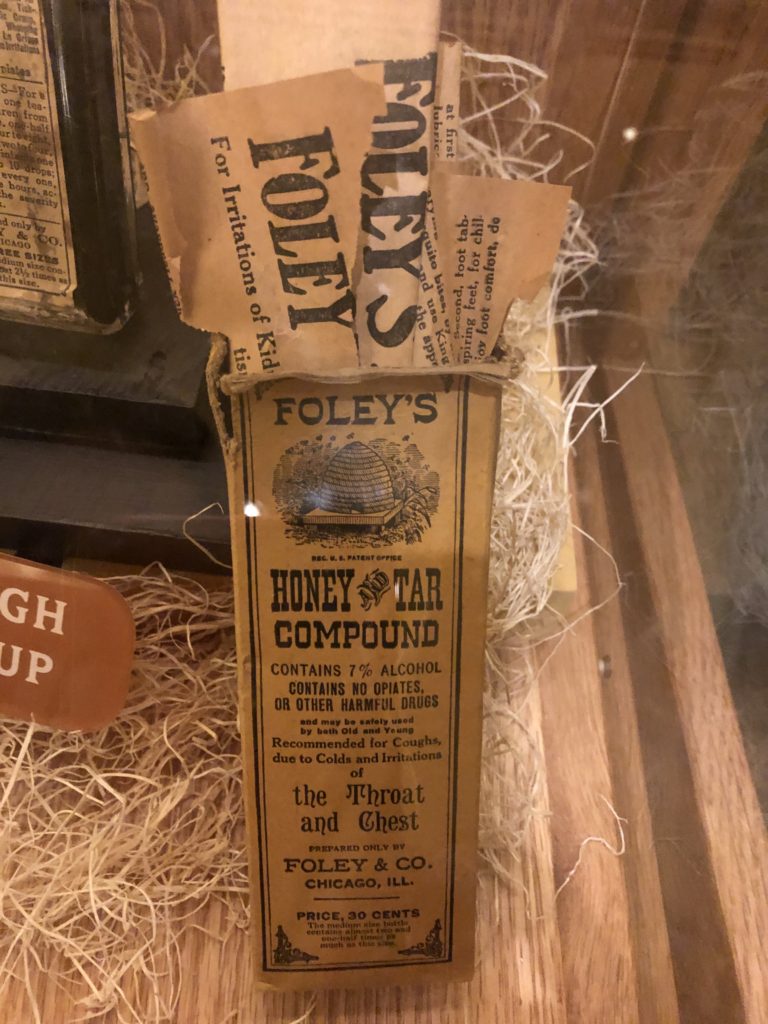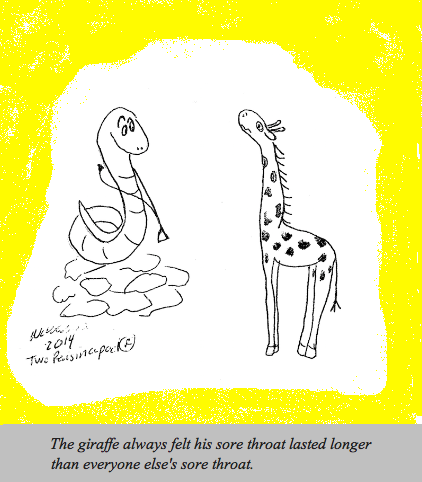The winter cold virus

Believe it or not, pharmacies sold this “cold remedy” until the 1960s!
Honey, tar, and alcohol, oh my! Tucked away in a display at the Mercer Museum of Bucks County, Dr. Lai found this old bottle of cough syrup from the late 1800s. While we do NOT recommend this type of medicine for children of any age for any condition, it does remind us that we wish we had the perfect cold remedy to offer our patients who have a winter cold virus.
Whether your child caught their cold from the infant room in daycare or the high school hallway during change of class time, kids with colds suffer similar symptoms in a similar time course.
Kids can start out feeling extra tired or out of sorts for a day or so, then they may develop a sore throat, runny nose, maybe a fever, and then the cough sets in. Fever from a cold virus starts within the first two days of a cold. Younger kids sometimes develop loose bowel movements or vomit mucus. Colds can cause watery eyes. Symptoms from a winter cold virus interrupt sleep and disrupt appetites.
What can parents do to help their children feel better from a winter cold virus?
- Treat pain from sore throats, nasal congestion, or mild aches with acetaminophen (Tylenol) or ibuprofen.
- Treat fever if it is causing discomfort, again with acetaminophen or ibuprofen.
- Use nasal saline to treat stuffy noses. Because babies can’t blow their noses, you can suction the mucus out to help them breathe better through their noses. Older kids can try to blow their noses to clear them. Steam from a hot shower can help clear out stuffy noses as well— read their bedtime story in the steamy bathroom or give them an extra bath.
- Coughing is normal with a cold. In kids over one year of age, honey can soothe a cough. In all kids, drinking extra fluids to moisten the throat will help suppress cough. Cough medicine doesn’t work well and the American Academy of Pediatrics does not recommend cough medicine for kids under 4 years. The cough medicine you can find on pharmacy shelves can have side effects and does not improve symptoms. However, if your child’s cough is from asthma, be sure to follow their asthma care plan to keep their airways open.
- All kids need extra fluids when sick: encourage lots of drinking.
It can take 2-3 weeks for ALL symptoms of a cold to resolve. However, kids usually feel their worst during the first week. If they are not feeling too miserable, they can still go to school. Keep your child home from school if they require too much TLC for a teacher to provide while caring for everyone else in the class. Older kids should stay home if they feel too tired or miserable to learn. Having trouble getting an older kid to pack a water bottle and go to school? Just remind them, “There is nothing wrong with your brain…just your nose.”
Most kids with colds never need a doctor visit. However, here are reasons to call your child’s pediatrician:
- Cough makes your child short of breath.
- Initial fever of 100.4 or higher lasts more than 2-3 days.
- All babies 8 weeks or less go to the Emergency Department for ANY temperature of 100.4 (rectal) or higher.
- Fever suddenly appears “just as you thought things were turning the corner and improving.”
- Your child does not drink enough to urinate their typical amount per day.
- Runny nose and cough show NO signs of improvement by the end of 2 weeks.
- Symptoms continue to get worse and worse, instead of better, after the first week.
- Watch for pain. Depending on location, pain can be a sign of a new bacterial infection on top of a cold virus. For example, ear pain can signify an ear infection, chest or shoulder pain can signify pneumonia, and pain over the face (cheeks or forehead or behind the nose) can signify a sinus infection.
How to keep from getting a winter cold virus? Wash your hands, wash your kids’ hands, and did we remember to say “wash hands?” Remember to get everyone in your family the flu vaccine, because the flu is MUCH WORSE than a cold, and you already know how miserable a cold can make your child feel.
And please do NOT use the cold remedy in the photo that Dr. Lai took at the museum. Better to ride out the winter cold with “tincture of time,” and chicken soup.
Julie Kardos, MD and Naline Lai, MD
©2019 Two Peds in a Pod®
